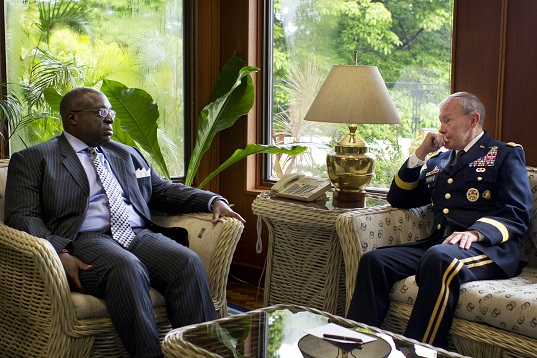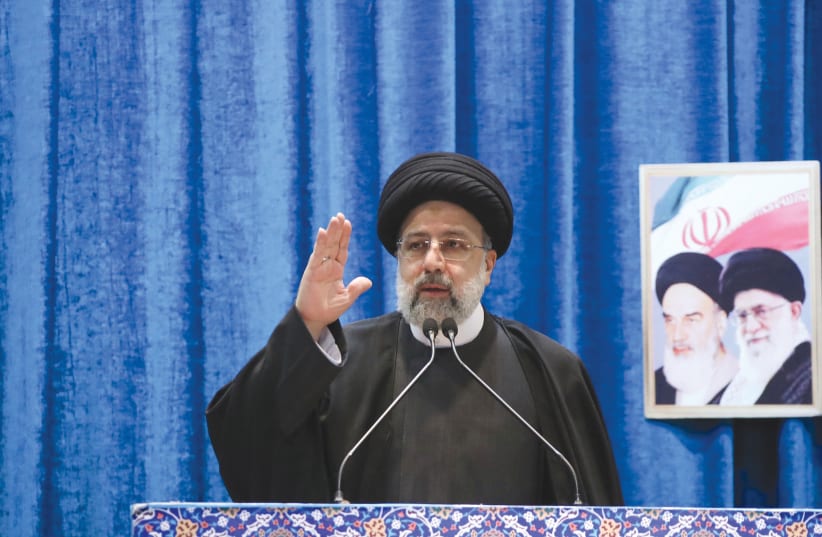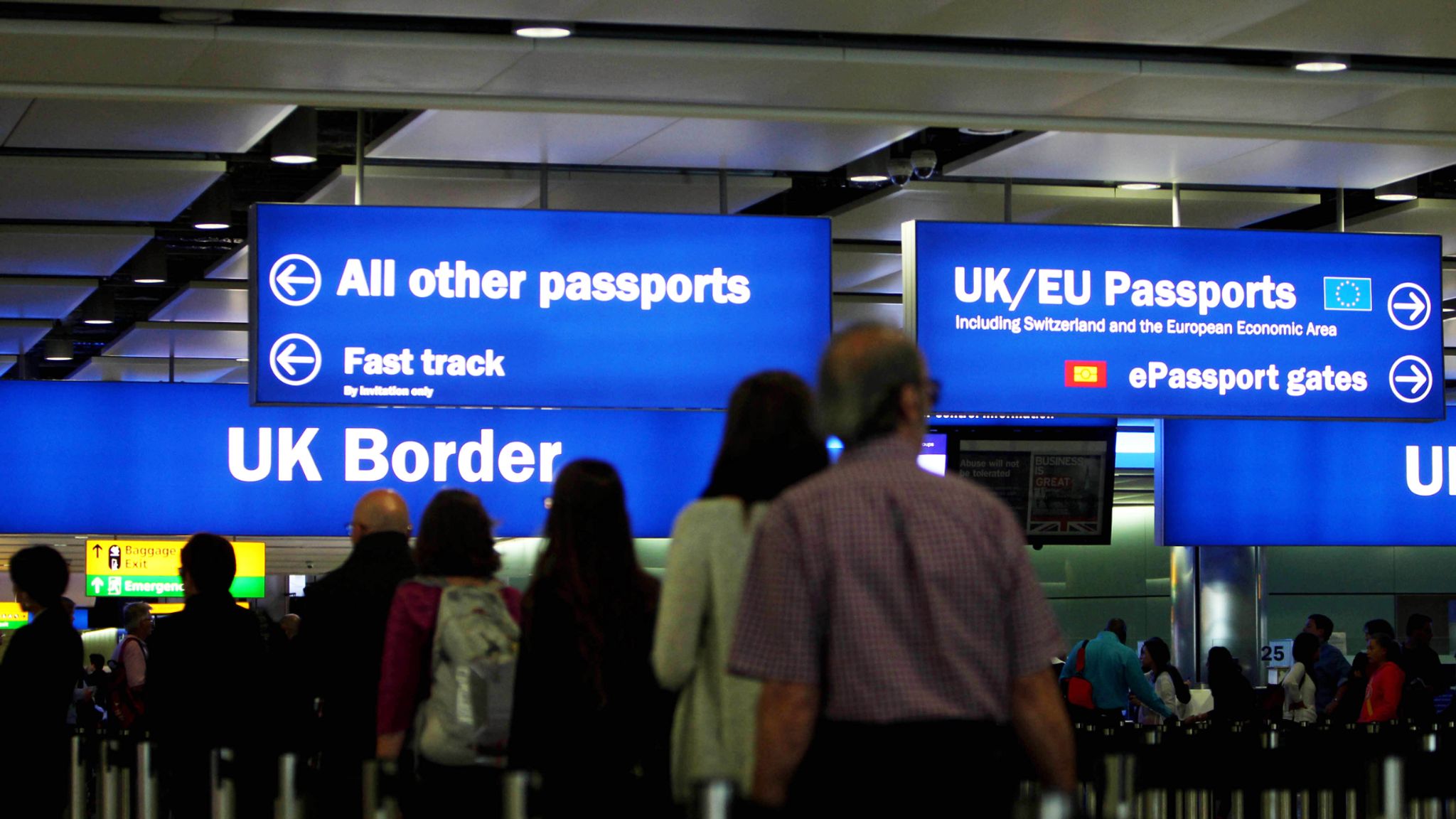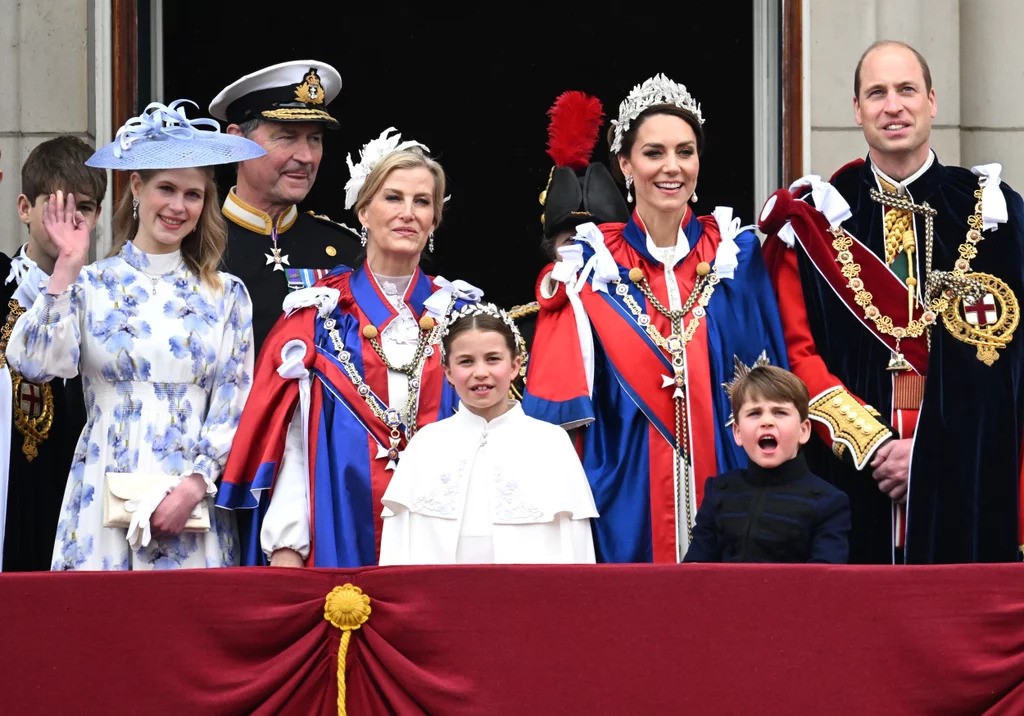HARARE — United States Ambassador to Zimbabwe has once against dismissed as “nonsensical” suggestions that targeted sanctions imposed by the West on President Robert Mugabe and his inner circle are hurting Zimbabwe.

Responding to questions raised by some people, including the African Union representative to the United States Arikana Chihombori Quao, who attended a VOA Studio 7 townhall in Washington DC held Thursday, Ambassador Harry Thomas Jnr. said there are many issues that have resulted in the current economic problems facing Zimbabwe.
“… If you look at the economy, what is the challenge? What has caused (that)? There has not been proper management of agriculture properly. President Mugabe himself listed how many millions and billions of dollars have gone missing in mining. That was not the United States who said that. That was President Mugabe.
“The other thing is that Zimbabwe was in arrears to IMF (International Monetary Fund) and the World Bank for years … Those things started before sanctions were imposed because Zimbabwe stopped paying its loans when it was in the Congo … It stopped paying its loans. Those are facts. I am very happy to deal with challenges and mistakes, anything in terms of facts. We don’t get facts, we emotion, name-calling, refusal to accept what you have done.”
Ambassador Thomas Jnr. said the sanctions have to be removed by Congress, which imposed them on Mr. Mugabe and his inner circle following allegations of election rigging and human rights abuses.
He said the United States president is also in a position to waive the sanctions.
Ambassador Thomas Jnr. noted that there were discussions in 2013 between the United States, European Union and other stakeholders to remove the sanctions in exchange of election observers.
“They were told no. So that is what happened but the place to lobby for the removal of the sanctions is the Hill. That’s the way it will have to be done and that will be in response to not only improved economy but democracy and governance.
“The United States supported Zimbabwe’s economic reform, the Lima process … We are open to that … My point is there is a lot of things that need to be done internally but if you are interested in removing sanctions you are going to have to demonstrate different performances to Senate and Congress.”
Responding to these remarks, Chihombori Quao and a co-panelist, Dr. Chipo Dendere of Gettysburg College in USA, said the sanctions are hurting Zimbabweans.
“There is data I will share with you indicating that there is evidence that sanctions have affected the everyday person in a very negative way.”
Her views were echoed by Chihombori Quao, who said African governments are generally regard the targeted sanctions in a negative way.
President Mugabe has over the years said the sanctions are hurting Zimbabwe’s economy.
Ambassador Thomas Jr. started his assignment in Zimbabwe on February 25th 2016 after presenting his credentials to President Robert Mugabe. His assignment to Zimbabwe is his second as a diplomat since the southern African country attained its independence in 1980.
He joined the Foreign Service in 1984, and has served as U.S. Ambassador to the Philippines from 2010 to 2013 and to Bangladesh from 2003 to 2005. He also served in the White House as the Director for South Asia at the National Security Council from 2001 to 2002.
His other postings include: New Delhi, India; Kaduna, Nigeria; and Lima, Peru. A graduate of the College of the Holy Cross and Columbia University, Ambassador Thomas Jr. also served at Arizona State University as the State Department’s Diplomat-in-Residence for the Southwest from 2013 to 2015.
After meeting President Robert Mugabe, the top American diplomat pledged “to continue the important work of building strong and respectful relations between” the two countries.
“We stand by the commitments that we made to the people of Zimbabwe at independence in 1980; to work together to promote democratic institutions, equitable economic growth, public health, and food security,” he said at the time.
“The United States shares the desires of the people of Zimbabwe, who want to see a peaceful, democratic, and prosperous Zimbabwe that provides for its people and contributes to regional stability.”
Ambassador Thomas’ immediate assignment has included overseeing U.S. government response to the 2015–2016 El Niño induced droughts and the construction of the New Embassy Campus in Bluffhill Harare. The latter has created more than 850 job opportunities for local Zimbabwean workers and injected more than $30 million dollars into the local economy each year since construction work began.
On the humanitarian front, the United States has ensured that humanitarian assistance reaches two million Zimbabweans during the El Niño-induced drought that led to widespread crop failure and left 4.1 million rural Zimbabweans food insecure.- VOA






